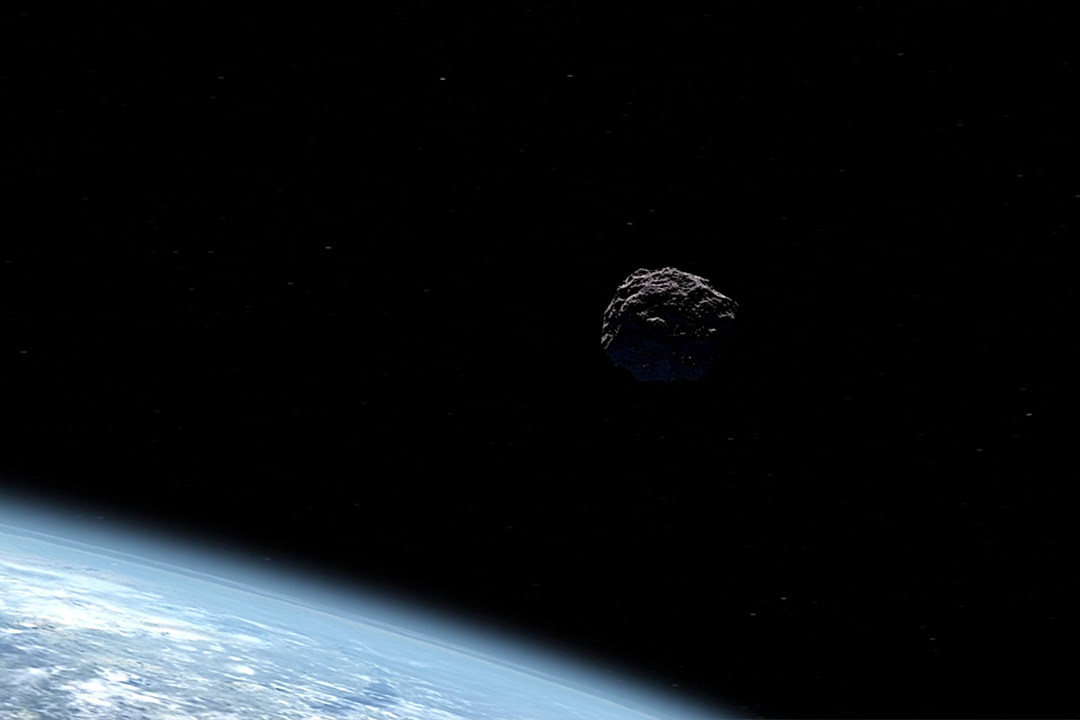Create a free profile to get unlimited access to exclusive videos, sweepstakes, and more!
The Earth and a newly noticed asteroid will have a close call this week
Like two (space) ships passing in the night.

In the 2012 apocalyptic romance Seeking a Friend for the End of the World, Dodge (Steve Carell) and Penny (Keira Knightley) learn, along with the rest of the world, that an asteroid will wipe out all life on Earth in three weeks’ time. It’s a massive thing, immovable, unerring, and on a collision course with our planet.
Recently, we discovered a real world asteroid orbiting incredibly close to our planet, and with even less advanced notice. Luckily, it’s quite a bit smaller than the asteroid from the movie and it will pass by our planet without making any contact. That’s pretty good, as far as unannounced asteroid flybys go.
The asteroid, dubbed 2023 BU, is believed to be between 12 and 28 feet (3.8 and 8.5 meters) in diameter, not quite large enough to pose any real threat to our species or our planet. The object was first identified just a few days ago, on Jan. 21, by Gennadiy Borisov, an astronomer at the MARGO Observatory in Crimea. The object was announced via the Minor Planet Center the following day.
RELATED: A comet is about to pass by Earth for the first (and last) time in 50,000 years
The small object is what’s considered an Apollo asteroid, a class of asteroids with a perihelion (the position of closest approach with the Sun) closer than the orbit of the Earth and a semi-major axis (half of the longest diameter of the orbit) greater than one AU, the average distance between the Earth and the Sun). It’s a complicated definition but, in practical terms, it means they are asteroids which cross Earth’s orbit at some point.
While these sorts of asteroids are incredibly common, their estimated lifespan is relatively short, on the order of 10 million years or so, thanks to the likelihood that they impact the inner planets. An impact with Earth would be a bad day for Earth, but it wouldn’t be so good for an asteroid either. It’s possible that a few orbits from now, 2023 BU might impact the Earth, but if it does we have no reason to worry. The asteroid is small enough that it would likely break up and disintegrate in the atmosphere before ever making landfall.
According to NASA, when the object passes by the Earth on Thursday, it will be nearest to the southern tip of South America. The agency used their Scout impact hazard assessment system, managed by the Center for Near Earth Object Studies (CNEOS), to calculate the asteroid’s near miss orbit, following its discovery.
“Scout quickly ruled out 2023 BU as an impactor, but despite the very few observations, it was nonetheless able to predict that the asteroid would make an extraordinarily close approach with Earth. In fact, this is one of the closest approaches by a known near-Earth object ever recorded,” said Davide Farnocchia, a navigation engineer at JPL who developed Scout, in a NASA statement.
Asteroid 2023 BU will have its closest approach with Earth on Jan. 26 at 4:17 P.M. ET. At that moment, the asteroid will pass at a little more than 2,000 miles above the planet’s surface. That’s significantly closer than our own GPS satellites and less than 1% of the distance from the Earth to the Moon.
If you’re hoping to see 2023 BU for yourself, you can look for it in the constellation Ursa Major, but it’s pretty small and relatively dim. You’d need a pretty decent telescope and favorably dark skies to glimpse it with your own eyes. Luckily, you don’t need to. The Virtual Telescope Project, a project provided by the Bellatrix Astronomical Observatory in Italy, will be streaming the asteroid’s flyby in real time, for anyone who wants to watch it.
This time, the Earth and an asteroid are passing by one another like two ships in the night, but you can see a different sort of cosmic rendezvous in Seeking a Friend for the End of the World, now available from Universal.


























